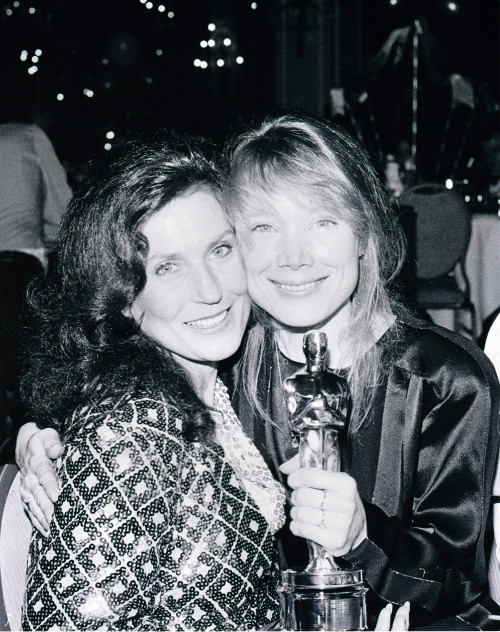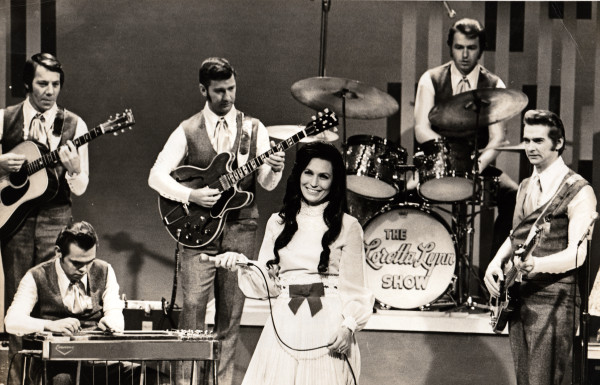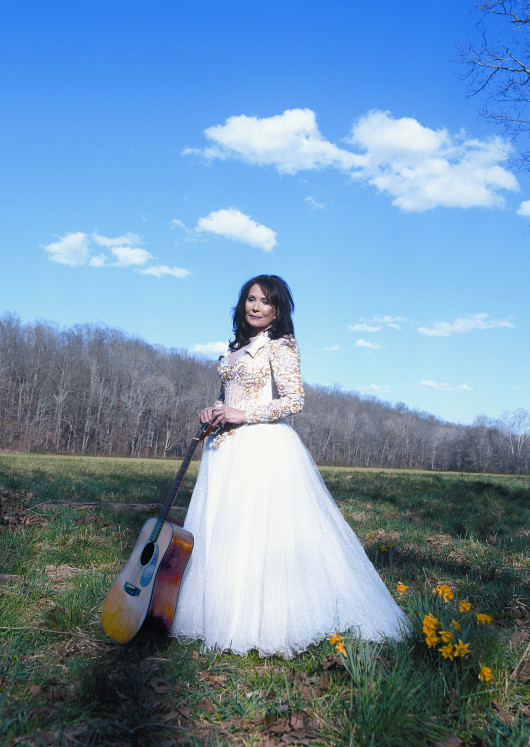Thirty six years have elapsed since the release of Michael Apted’s moving biopic, Coal Miner’s Daughter, starring Sissy Spacek as the American country singer Loretta Lynn. Spacek won an Academy Award for her portrayal of Lynn, whose rags-to-riches story evoked high emotion.

Nearly four decades on, at the age of 83, Lynn — a member of the Grand Ole Opry — is still going strong. In Nashville, the capital of country music, she’s a star, a legend in her own time.
The Queen of Country Music, as she’s often called, is the subject of Vikram Jayanti’s Loretta Lynn: Still A Mountain Girl, a comprehensive and entertaining assessment of her career due to be broadcast by the PBS network on Friday, March 4 from 9 to 11 p.m. (check local listings). This two-hour American Masters documentary relies heavily on interviews with Lynn and members of her family and home movies of her formative years as a struggling performer.
Portrayed as an immensely talented performer who earned her spurs through hard work and determination, she was born into a working-class family in Butcher Hollow, Kentucky, a remote corner of Appalachia. As she croons in her signature song, Coal Miner’s Daughter, “We were poor, but we had love.”
Described as “a little mountain girl” who was raised on a steady diet of hillbilly music, she married Oliver Lynn, an older man, when she was only 15. Her relationship with him, deep and stormy, was profoundly instrumental, providing her with first-hand material for plaintive songs such as I’m A Honky Tonk Girl and You Ain’t Woman Enough.

As one commentator correctly observers, “The story of her life is in her songs.” Sheryl Crow, another interviewee, says they’re about hard-living men and women. Spacek, who also appears in the film, points out that Lynn was never afraid to speak her mind.
Lynn’s first hit, I’m A Honky Tonk Girl, set her on her way, the singer Garth Brooks says. But Lynn may have remained a nonentity had her astute husband not recognized her talent and encouraged her to develop it as a professional performer.
Lynn began her climb to success after appearing on the Ernest Tubb Mid-Nite Jamobree radio show and befriending Patsy Cline, the legendary country star. Cline, who would be tragically killed in an airplane crash, took Lynn under her wing and helped her polish her stage persona.
The documentary suggests that Lynn’s gruelling schedule — about 200 concerts annually — kept her on the road for a month or more at a stretch, cutting into her quality time with her six children.

Lynn’s partnership with the singer Conway Twitty was successful enough, but it spawned untrue rumours she was having an extramarital affair with him.
Lynn’s popularity has a lot to do with the fact that, as one observer notes, “the people heard themselves in her songs.” In presenting her with the Presidential of Freedom in 2013, President Barack Obama succinctly said, “She gave a voice to a generation.”
Quite true.
Having sold a phenomenal 45 million records, she’s an entertainer for the ages. This comes across strongly in PBS’ sympathetic appraisal of the formidable Loretta Lynn.